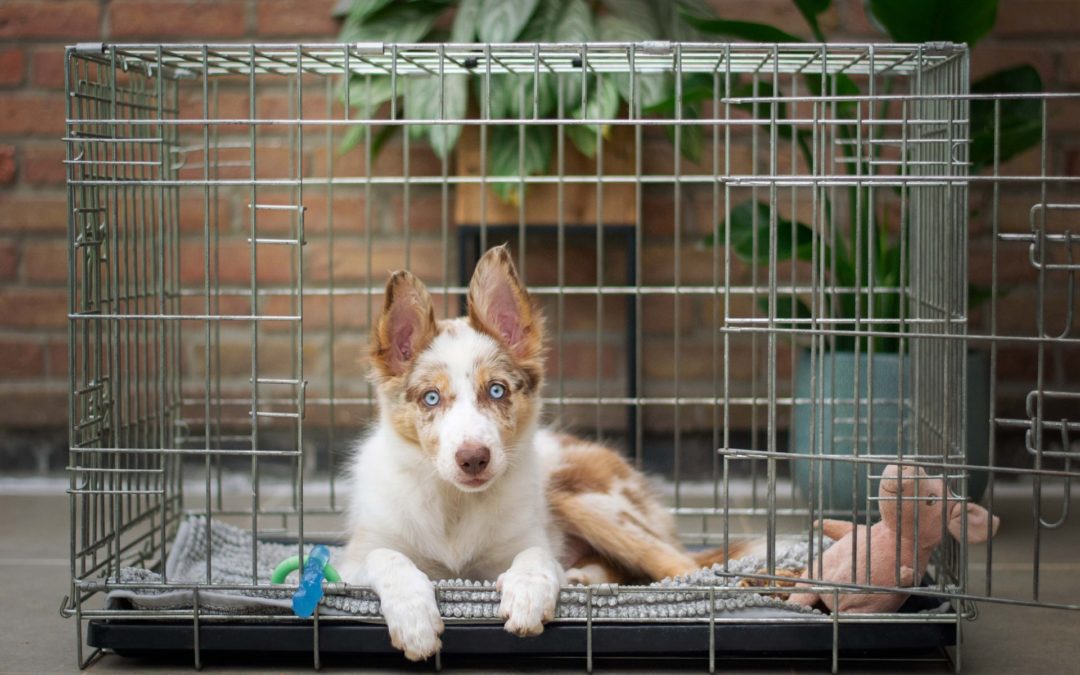January is National Train Your Dog Month, so make sure you have some treats ready for helping your new puppy master some tricks! Having a new puppy is exciting, and training him or her is a great way to bond together. When you’re able to communicate with your dog, it’s one of the best feelings. While training your puppy can be fun, you’ll also need to exercise some discipline, especially during potty training. Today the vets at East Valley Animal Hospital are sharing some puppy training tips.
Three Essential Tips for Training Your New Puppy
Training a puppy can be joyful and stressful at the same time, but in the end, it’s always rewarding. The feeling of teaching a trick to your puppy and watching them perform it on command is a great feeling. Puppies also need to be housetrained and learn how to walk on a leash. Training a puppy can be difficult at times, so here are some expert tips to follow.
#1: Be Patient
Puppies can be very hyper, and easily get excited—they don’t have a very long attention span. It might take them some time to learn how to go potty outside, sit, shake, or walk on a leash. But if you’re patient and keep a positive attitude, you’ll eventually see your puppy make progress.
If you’re feeling stressed out or frustrated, your puppy might be feeling just as frustrated as you. Take a step back and take a moment to breathe. Practicing mindfulness can help, and in this situation, it means viewing training from your pup’s perspective.
#2 Have Fun
No matter how many obstacles you encounter while training your pup, always remember to have fun! Teaching your puppy good behavior is a great way to bond and communicate with them. By taking the time to train your puppy, you’ll be also able to observe and reward the progress they make.
If your puppy starts to seem uninterested, take a break and let them play for a bit. Taking time to play gives you both a chance to relax, setting you up for a fresh start when you get back to training.
#3 Practice Positive Reinforcement
Using positive reinforcement like treats to teach your puppy new skills guarantees a higher chance of success. Whether you’re potty training or teaching them how to recognize their name, after your puppy completes a task, show your appreciation by giving them a treat. It’s a scientifically proven fact that dogs are more willing to learn and able to learn better when they are rewarded. As you see your puppy performing tasks quicker, slowly wean them off the treats and replace it with a verbal reward such as “good dog.” Treats are great, but they should be used in moderation, especially as your puppy grows older.
Puppy Potty Training Tips
Potty training can be one of the most challenging aspects of training a new puppy, but it’s an essential skill your puppy will need. Most dogs can learn potty training when they are around 12 to 16 weeks old. On average, it takes most puppies 4-6 months to fully learn that they need to go outside to do their business.
During potty training, there are bound to be slip-ups and accidents, but don’t give up! When accidents happen, stay calm and speak softly. Dogs can sense when you are angry, and this can make them even more upset, setting back any progress you made in potty training.
When you start potty training, you have two options: you can either use a crate or use potty pads to help your puppy learn. Using a crate is an excellent way to potty train your pup because it gives them independence and helps them recognize the urge to use the bathroom. Since most dogs don’t go potty where they sleep, your puppy will whine or bark to be let out of their crate.
When you let your puppy out, give them positive feedback by using encouraging words. Then, you can either lead your puppy outside or direct them to use potty pads around the house. After they do their business, praise them and give them a treat so they know that they did a good job. Over time, your puppy will be able to use the bathroom on a regular basis and you can cut back on treats.
Need More Tips on Training Your Puppy?
If you have any questions or concerns regarding training your puppy, feel free to ask us at your puppy’s next visit. Give us a call at 480-568-2462 to schedule an appointment, or send us a message at info@eastvalleyanimal.com. Our vets and staff will be happy to help you and your dog bond with tips for learning essential life skills. And if you haven’t already, don’t forget to schedule your puppy’s next round of vaccinations—go here to register.
Images used under creative commons license – commercial use (1/28/24). Photo by Ayla Verschueren on Unsplash

